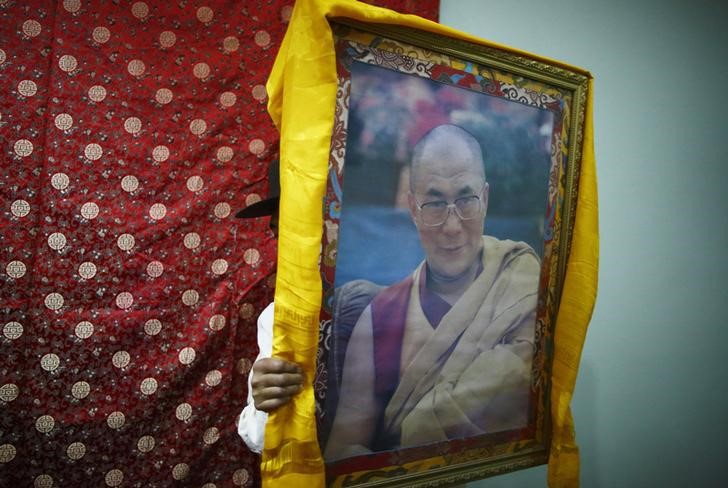BEIJING (Reuters) - It is up to the Dalai Lama to decide whether he will be reborn, Tibetan Buddhism's third highest religious leader said, after Chinese officials repeatedly said the exiled Dalai Lama had no right to abandon reincarnation.
Ogyen Trinley Dorje, who holds the title of Karmapa Lama and lives in exile in India, told Radio Free Asia in an interview in Washington that he had "complete belief" in the ability of the Dalai Lama to decide his fate after death.
"In Tibetan traditions, we don't talk much about the reincarnation of a living master," he said late on Wednesday.
"However, now many questions are being generated. In my view, it is only the Dalai Lama himself who should decide about his future reincarnation. So I am confident and have full trust in his decision. There are many presumptive statements and guess works, but I am not worried," he said.
The Karmapa is close to the Dalai Lama and after him is the most eminent Lama to have fled Chinese rule of Tibet, which Communist forces "peacefully liberated" in 1950.
Despite his escape across the Himalayas in 2000, the Karmapa remains recognised by Beijing as the 17th incarnation of his spiritual lineage.
Tibetan Buddhism holds that the soul of a senior lama is reincarnated in the body of a child on his death. China says the tradition must continue and it must approve the next Dalai Lama.
However the Nobel peace laureate, who fled his homeland in 1959 after an abortive uprising against Chinese rule, has said he thinks the title could end when he dies.
Chinese Foreign Ministry spokesman Hong Lei, asked about the Karmapa's comments, said the tradition of reincarnation went back centuries.
"The Dalai Lama's reincarnation must respect the relevant religious rituals, historic custom and the state's laws and rules," Hong told a daily news briefing.
Tibet's China-appointed governor last month accused the Dalai Lama of blasphemy for doubting reincarnation.
Tibetans fear that China will use the issue of the Dalai Lama's religious succession to split Tibetan Buddhism, with one new Dalai Lama named by exiles and one by China after his death.

In 1995, after the Dalai Lama named a boy in Tibet as the reincarnation of the previous Panchen Lama, the second highest figure in Tibetan Buddhism, China put the boy under house arrest and installed another in his place. Many Tibetans spurn the Chinese-appointed Panchen Lama as a fake.